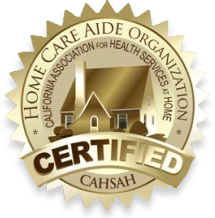Angina is the medical term used for pain in the chest. It is an indicator that the older adult has developing heart disease or coronary artery disease.
Typically, angina causes pain or pressure in the chest. Some people, though, experience the pain in their back, jaw, neck, upper abdomen, arms, or shoulders. There are two kinds of angina, stable angina and unstable angina. When a senior has stable angina, their symptoms usually occur at predictable times and they likely know what is causing it. Unstable angina is angina that does not have steady symptoms or whose symptoms have changed. The older adult might feel chest pain when they are resting. The pain might not go away when the older adult follows the treatment plan, such as using nitroglycerin. If your aging relative suffers from angina, knowing what to do at home can make managing the problem easier. Below are some tips to help with managing your older family member’s angina.
Get Emergency Assistance for Unstable Angina
Unstable angina should be treated as a medical emergency. It could be a sign that the older adult is having a heart attack. If the senior has chest pain in unusual or new circumstances or the pain does not go away, call 911.
If your aging relative is with an elder care provider when unstable angina occurs, the provider can call 911.
Track the Symptoms
It’s important that older adults with stable angina know what is normal for them. If they don’t, it can be hard to know when stable angina has turned to unstable angina and requires medical assistance. Keep a journal of your aging relative’s symptoms. When they experience angina, write down the date and time as well as the circumstances. For example, was the senior exercising? Had they eaten a big meal? Were they under stress? Also make note of what the senior did to relieve the pain, such as taking medicine or resting.
An elder care provider can assist with writing down important information for tracking angina symptoms.
Continue with Physical Activity
Exercise is important for keeping the heart as healthy and as strong as possible. Before your older family member begins exercising, talk to the doctor about what will be safe for them. Once they have been cleared to exercise, make it a part of their regular routine.
Elder care providers can help older adults with angina to feel safer while exercising by staying with them in case something happens. Elder care providers can also go for walks with the senior or drive them to an exercise facility.
Manage Stress
Stress can trigger angina. If your older family member is experiencing stress due to worries about health, finances, or the future, help them to find ways to relieve their stress. Talk to the doctor about stress management. Some things that may help are doing yoga, meditating, or using deep breathing exercises.
Having an elder care provider can reduce some of the stress your aging relative is feeling. By having elder care, older adults may feel safer in their homes and less worried about their health since they know someone will be available to help them even when you cannot be there.
If you or an aging loved-one are considering hiring a Caregiver in San Jose, CA, contact the friendly staff at Home Care Professionals today.
Call (866)-940-4855
Sources
https://www.mayoclinic.org/
- Seven Indicators That Your Loved One Could Benefit from 24-Hour Home Care - April 18, 2025
- Creating Visual Cues to Support Independence for Seniors With Alzheimer’s - April 9, 2025
- Protecting Your Senior From Distracted Driving Mistakes - April 2, 2025



